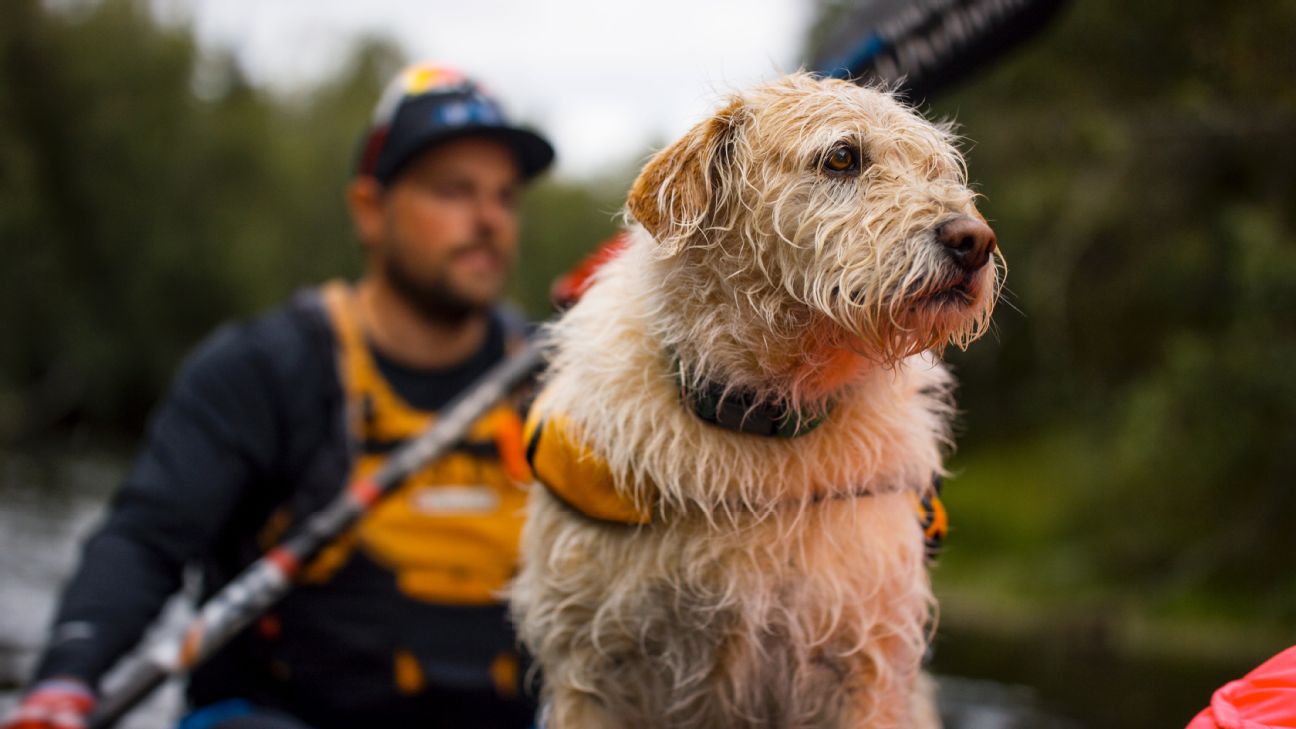A distance of 6,455 miles doesn't begin to measure the journey one dog made to join a team and find a family.Krister C÷ransson
Arthur
A distance of 6,455 miles doesn't begin to measure the journey one dog made -- to join a team, and find a family.
Originally posted March 3, 2017.
Yes, it's a dog story. So it's understandable if you roll your eyes and shrug your shoulders. If you react, as you might, to the images that run across your mind, bounding and unleashed. You know the images: Puppies frolicking in grass fields or retrievers leaping into summer lakes or collies chasing after Frisbees in the park.
Awww …
Yes, it's a dog story. But this story doesn't fit those pictures, unless the settings you imagine are the dense and swallowing Amazon jungle or the dusty streets of Quito, Ecuador, or a village 300 miles south of the Arctic Circle.
As with many stories about animals and humans, it's informed by a bond -- ancient as the place where it first formed, and new as the ways it was preserved and protected.
It's a dog story -- a dog that joined a race, and outpaced death, to find a new life.
"To be honest, I can't understand how he survived all this …" -- Mikael Lindnord, captain of Team Peak Performance
2014 Adventure Racing World Championship

The Sport
Adventure racing is less competition than survival test. A marginal sport in America but popular globally, its contests are cultlike in their following. Races, covering hundreds of miles across uncharted courses, feature some of the most extreme conditions in the world.
The races and rules are simple.
A team climbs, treks, cycles and kayaks across the arena of Earth. Races can last up to 10 days, with competitors sleeping an hour a night, or less -- all while sticking together, orienteering through climate zones, rationing food and water, and pushing their collective wills to the limit.
The team must cross the finish line together in order to win.
In 2014, heading into the Adventure Racing World Championships, Team Peak Performance for Sweden -- Mikael and Helena Lindnord, Simon Niemi, Karen Lundgren and Staffan Björklund -- was one of the best squads. The course that year was particularly difficult: 435 miles, reaching about 15,000 feet in elevation and spanning 13 different climate zones across Ecuador.
"If you want to be the best at this sport, you need to suffer." -- Lindnord
"There's plenty of chances to get injured and die. I've been in races where people died." -- Karen Lundgren, team member
"Our main goal was to be ranked #1 and win the world championship." -- Lindnord
An Unlikely Encounter
On Day 4 of the race, the team reached a transition area, ready to change disciplines from biking to trekking. Just a few hours behind the leaders -- close in race terms -- the team's course would suddenly change. A then-unnamed stray dog approached Lindnord. The animal was in poor condition, severely injured with a large wound on its back.
Lindnord gave the dog a bit of food -- a Swedish meatball.
As the team members continued along the course, they realized they weren't alone.
More than a day later, the dog had a team, and a name: Arthur.
"I think he deserved the name Arthur. Like a king." -- Lindnord
By Day 5, all were weak and tired, including Arthur.
The Race
Arthur's road appeared to end along the banks of the Cojimies River. In one of the final stages of the race, his team prepared for a 34-mile, 14-hour passage along the water, kayaking its way toward the finish.
"... And then we pushed away, I was looking at him and started to paddle. And then I heard ... splash!" -- Lindnord
"Arthur had jumped into the water. He came swimming after us." -- Staffan Björklund, team member
"It was so clear, he was a part of us. … There was something bigger in taking care of this dog than winning." -- Björklund
On Day 6, Arthur followed his team across the finish line. Team Peak Performance finished 12th out of 54 teams in the race.
Finding Home
"He felt something with Arthur, and he couldn't leave him. He just wanted to help his friend." -- Helena Lindnord, Mikael's wife
The race was over. The journey was just beginning.
After crossing the finish line, Mikael quickly realized he didn't want to leave Arthur behind. But getting the dog from Ecuador to Sweden was no easy matter. Both governments got involved, as news of the story began to spread across Europe, where photos of Arthur had gone viral.
"He had large wounds on his back, like he had been beaten or something. If Arthur had been left in Ecuador, he would probably be dead by now." -- Eva Molin, Arthur's veterinarian
In spring 2015, Arthur was released, to join his new family, in Örnsköldsvik, Sweden, less than 300 miles south of the Arctic Circle.
"He's a part of the family. It's difficult to explain the bond, but there's something special." -- Helena Lindnord, Mikael's wife
"It's the single best thing I've ever done. He would never survive," Lindnord said. After two years, Arthur is comfortable, safe and loved in his new home.

